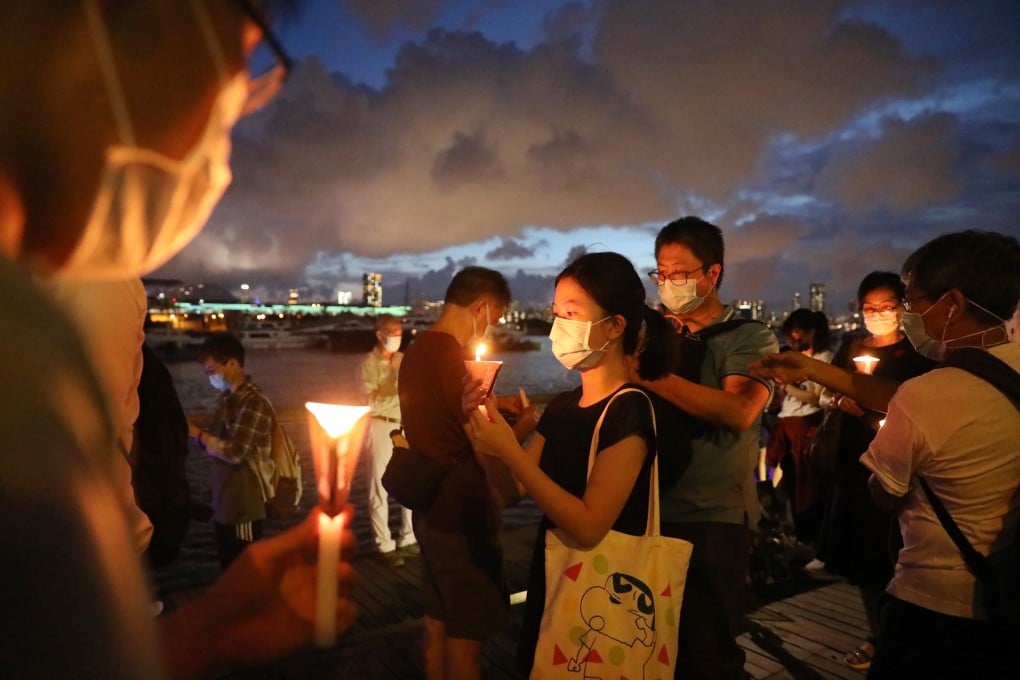Hong Kong’s Tiananmen vigil embraced by new generation, as young activists recommit to fighting for those without a voice
- The anniversary has been dismissed by some residents in the past as a futile exercise that never drew mainland China any closer to democracy
- But with the Beijing-mandated national security law on the horizon, some are wondering if this year’s event will be the last

In recent years, the organiser of the annual Tiananmen vigil in Hong Kong endured questions about its relevance from young people who slammed it for being ritualistic, naive and idealistic for caring about democratic change in mainland China.
“I used to find shouting slogans [in the park] a bit useless, especially when the alliance has been doing it all these years,” said Mary Leung, a 24-year-old Chinese University student. On Thursday night, however, Leung showed up in Mong Kok with five of her friends to take part in a vigil spread across the city. “Now it becomes something we want to treasure: the exercise of free speech,” she said.

As the annual event in Victoria Park was banned because of social-distancing rules in place to combat the coronavirus pandemic, participants popped up in assorted locations with candles. But that was not the only difference to the commemoration.